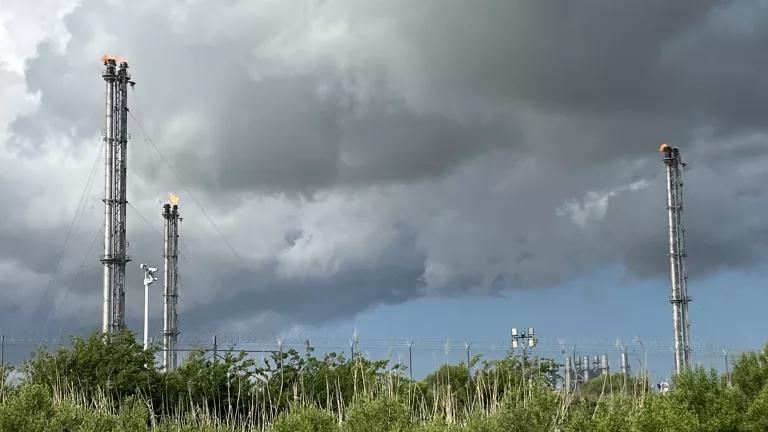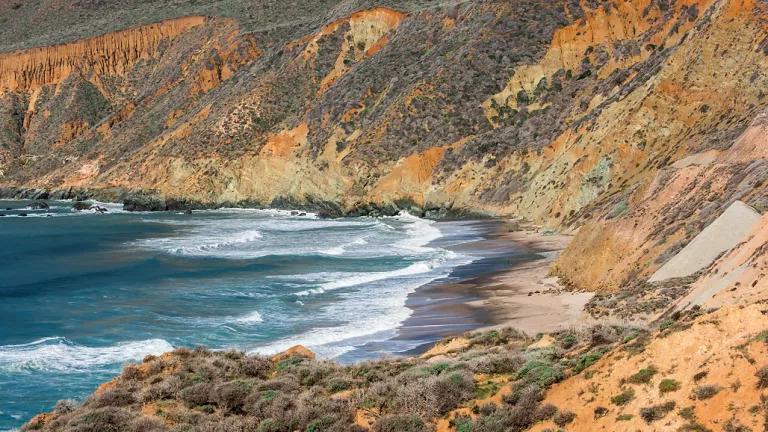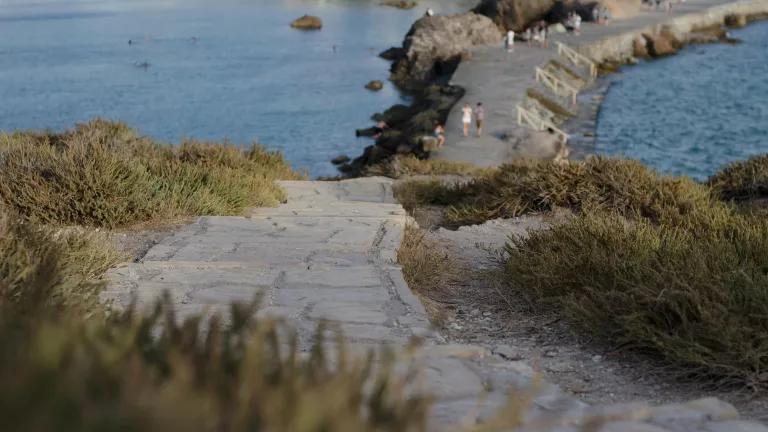Grijalva Bill Makes the Ocean Part of the Climate Solution
The ocean has the power to mitigate climate change and enhance the resilience of marine ecosystems and the coastal communities that rely on them.

The ocean supports us in so many ways—it feeds us, produces half the oxygen we breathe, is a source of jobs and recreation, its wetlands and reefs protect inshore businesses and homes from storms, and is a source of wonder. The ocean is also a source of climate solutions—it has the power both to mitigate climate change and enhance the resilience of marine ecosystems and the coastal communities that rely on them. We need ocean climate action now more than ever, and Rep. Raul Grijalva (D-AZ) has answered that call with bold legislation—the Ocean-Based Climate Solutions Act of 2020.
It is not news that the ocean is the life support for our planet and home to more than half of the biodiversity on earth. Over the last century, it has become even more critical to our survival—the ocean has already absorbed 90% of the heat from climate change and one third of carbon emissions. Going forward, the ocean must have an even bigger role. It has the potential to provide a fifth of the annual cuts of greenhouse gas emissions needed to reduce global temperature rise. The new ocean-based climate bill provides the solutions to achieve this potential while also addressing impacts on ocean ecosystems and our coastal communities.
While virtually every community is affected by climate change, not all are affected equally. We know that the low-income communities and people of color will bear the largest burden of climate impacts—including coastal communities that are faced with sea level rise, harmful algal blooms, and ocean acidification. This bill prioritizes funding for these vulnerable communities, creates a coastal community vulnerability assessment, and creates a Tribal Resilience program to start to address climate impacts. Climate change is already impacting communities, which is why it is so important to tackle the climate crisis and look for climate solutions, including those based in the ocean.
Below are some highlights of Rep. Grijalva’s bill:
Stopping Offshore Drilling
To meet the goals of goals of the Paris climate agreement and reduce our carbon emissions, we can’t continue offshore drilling. Beyond exacerbating the impacts of climate change, the expansion of offshore drilling in U.S. waters would threaten countless marine species and harm tens of millions of Americans. Simply the seismic blasting done to explore for oil and gas in the seafloor has horrendous impacts on marine life. This bill is boldest answer we’ve seen to address the issue of offshore drilling and seismic testing – it calls for an end to offshore oil and gas leasing in all areas of the outer continental shelf and an end to seismic exploration for mineral resources (except in areas already under lease). This effectively means no new offshore drilling—an essential step towards tackling the climate crisis.
Protecting Ocean Habitats
Healthy ocean ecosystems and wildlife populations are better able to withstand and adapt to the effects of climate change. Marine protected areas play the role of both protecting biodiversity and contributing to ocean resilience in the face of climate change. Scientists have said that protecting lands and waters is critical in our defense against climate change and to save the diversity and abundance of life on earth. This bill sets a goal of protecting at least 30% of our oceans by 2030 to safeguard our future. These areas would prohibit any commercial extractive or destructive human activities. The bill also strengthens protections for marine mammals from ocean noise and vessel collisions. By protecting important areas of the ocean, we are giving ocean wildlife safe havens where they can recover from stress and be more resilient in the face of climate change.
Expanding Renewable Energy
Offshore wind has massive potential as an ocean-based climate solution—this bill sets a national goal of producing 12.5 gigawatts by 2025 and 25 gigawatts by 2030 for offshore wind energy and calls for the development of best practices and increased funding to ensure that offshore wind development expands without harming marine life. To reduce greenhouse gas emissions, the bill requires shipping vessels to report their CO2 emissions every year and creates incentives for fuel efficient fishing vessels.
Supporting Climate-Ready Fisheries
Climate change is already disrupting our fisheries. Fish stocks are emerging in new geographic areas as conditions change, and are facing increased threats from extreme events like heat waves and algal blooms that can devastate fish populations. To transition to climate ready fisheries, we must be more adaptive and flexible as changes continue to occur. This bill supports the development of innovative tools and approaches to increase the capacity of fisheries management to adapt to climate change. The bill also starts a much-needed science-based review of concerns around shifting fish stocks.
Addressing Ocean Health
Ocean health impacts both the environment and those who live near it. Harmful algal blooms and ocean acidification have detrimental effects on our seafood, tourism, recreation, and communities. This bill looks at how to improve our understanding of ocean acidification by incentivizing development of management or adaptation options, creating a coastal community vulnerability assessment to identify those most dependent on coastal and ocean resources, and requires the ocean acidification strategic plan to consider socio-economic impacts, among other things. The bill also makes areas hit by harmful algal blooms eligible for disaster relief and emergency assistance.
Increasing Blue Carbon & Coastal Resiliency
“Blue carbon,” which is the carbon stored in the ocean by seagrasses, salt marshes, and mangroves, is a key part of an ocean climate solution. These same ecosystems that store up to four times the amount of carbon in a forest also protect coastal communities by limiting impacts from erosion, storms, and flooding. This bill initiates new efforts, as well as supports existing activities, to understand, map, protect, and restore blue carbon ecosystems. The bill specifically authorizes $3 billion to support ‘shovel ready’ coastal restoration projects with a priority given to projects that will benefit low-income and communities of color. These projects help the environment, communities, and the economy.
Reengaging in International & Tribal Ocean Governance
To fully address the ocean’s role in tackling climate change, we need a coordinated international effort. The bill restores and strengthens United States leadership in the international ocean space by honoring the U.S. commitment to the Arctic Council to cut black carbon emissions and reinstate the Northern Bering Sea Climate Resilience Area. Further, the bill creates a Tribal Resilience Program to support Native American leaders and provide grants for climate resilience activities. The bill also recommends that the United States ratify the UN Convention on the Law of the Sea to improve our ability to engage in international ocean management.
Grijalva’s bill is an essential step in harnessing the ocean to defend against the nature and climate crises. We need to act on climate now, and our ocean is essential both in mitigating climate change and enhancing resilience.




